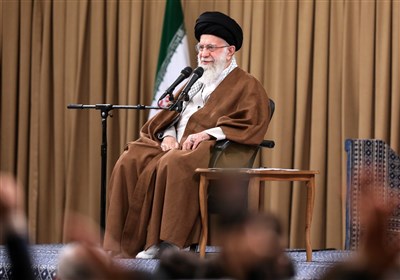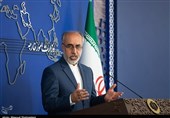Barring An Entire Nationality of Immigrants Unhelpful: US Prof.
TEHRAN (Tasnim) – A professor of immigration law at the University of Nevada at Las Vegas said banning an entire nationality of immigrants without exception is not a helpful immigration policy.
“I do not think that any ban on an entire nationality is a helpful immigration policy. Security screening should be individualized,” Michael Kagan told the Tasnim News Agency.
Kagan directs the Immigration Clinic and teaches administrative law, professional responsibility, international human rights and immigration law. In both his research and his clinical teaching, Prof. Kagan focuses on the tension between immigration law and civil rights. His areas of expertise include Administrative Law, Criminal Law, First Amendment, International Human Rights Law, Immigration Law, and Professional Ethics.
Following is the full text of the interview.
Tasnim: As you know, US President Donald Trump has signed an executive order that imposes a 90-day entry ban for citizens of Iran, Iraq, Syria, Yemen, Sudan, Libya, and Somalia, blocks refugees from Syria indefinitely, and suspends all refugee admissions for 120 days. You have called the move “a significant setback for the Trump administration.” What is your take on the move? Do you believe that the decision can be reversed? Kindly explain.
Kagan: The ban shocked many people because it seemed arbitrary and the result of anti-Muslim sentiment rather than any rational analysis. It was blocked by the courts, and the Trump Administration has indicated it will issue a new order rather than appeal further. But of course, we do not yet know what will be in the new order.
Tasnim: As you know, US federal immigration agents arrested hundreds of immigrants in at least four states this week in what officials on Friday called “routine” enforcement actions. You said in a recent interview that immigration advocates are concerned that the arrests could signal the beginning of more aggressive enforcement and increased deportations under the new US administration. It seems that fear is running high among immigrant communities since Trump's inauguration. What is your take on the new wave of arrests? Kindly elaborate your opinion.
Kagan: Many of these arrests could have taken place during the Obama Administration because many of the people arrested had criminal convictions. But some of the people did not. That fact showed that the Trump Administration may try to target any of the 11 million undocumented people in the country, even if they have never had any criminal record.
Tasnim: President Trump has excluded Saudi Arabia and certain Persian Gulf states in his order. Back in July 2016, the US government released 28 pages of a congressional report on the September 11, 2001, terrorist attacks, which show the Saudi government may have had a hand in the attacks. “While in the United States, some of the September 11 hijackers were in contact with, and received support or assistance from, individuals who may be connected to the Saudi Government…there is information, primarily from FBI sources, that at least two of those individuals were alleged by some to be Saudi intelligence officers,” reads part of the report. What is your take on this?
Kagan: I do not think that any ban on an entire nationality is a helpful immigration policy. Security screening should be individualized. We know that some white Americans commit murder. We would not ban all white Americans. We should not presume that all Saudis are dangerous, either. Nevertheless, the list of seven countries seemed completely arbitrary to many people. Several 9/11 hijackers came from Egypt, and Egypt was also not on the list.
Tasnim: Trump’s stance on global trade, the Paris climate deal, and the Iran nuclear deal threaten to unpick key elements of global governance. His back-and-forth on NATO is deeply worrying for the future of European security. And his travel ban has sown chaos, undermining the international management of the refugee crisis and fanning the flames of extremism. What do you think?
Kagan: Trump has indicated that he does not like multi-lateral treaties, but multilateral treaties have been the emerging trend for a century of international law. Trump seems to think in terms of deal making rather than developing international rules of the game for everyone to follow. He wants to negotiate with each country separately. If he really follows through on this philosophy, it could be destabilizing over the long term.





